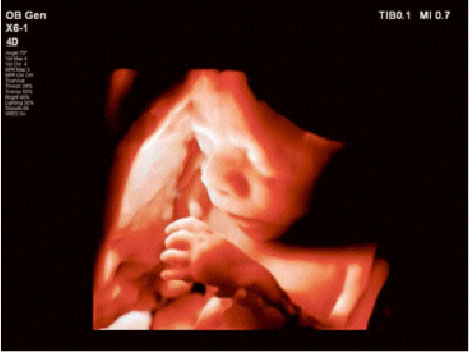
**To all Coalition Members**
RTLACO position on
Senate Bill 123, Human Life Protection Act
and
House Bill 598, Enact Human Life Protection Act
these proposed bills are known as “trigger bills”
SB 123 & HB 598 do not safeguard
the inalienable right to life
read WHY we cannot support these bills as written
talking points here
We cannot support SB 123 or companion HB 598, as they currently exist, due to the weaknesses in protecting life that are written into both bills
read SB 123, Human Life Protection Act
read HB 598, Enact Human Life Protection Act
Questions about these bills?
please contact:
Linda J. Theis, President

UK’s Failed Experiment is a Message for America.
During the pandemic the UK conducted an experiment on its women regarding the safety and efficiency of using DIY at- home chemical abortions. The program failed and, in the process, proved to be a serious detriment to women’s health – not to mention killing their babies. It also exposed mothers to an increased risk of becoming victims of criminal activity.
The United Kingdom was justified in pulling the plug on their failed DIY chemical abortion experiment. Their decision was based on the following sound reasons:
- Over 10,000 women required follow up hospital treatment.
- There were several incidents involving ruptured ectopic pregnancies and resuscitation for major hemorrhage.
- A fear of vast underreporting of serious complications like hemorrhage, uterine perforation, and sepsis.
- A nationwide undercover investigation revealed abortionists were putting women at significant risk due to the lack of basic medical safeguards. A surge in 999 calls – the equivalent of 911.
- Multiple requests by Members of Parliament and medical professionals to end DIY at-home chemical abortions.
- More than 600 medical professionals signed an open letter calling for an end to the ill-advised program.
- Concerns by medical professionals that women and young girls were being coerced or forced to take the abortion pill.
- Alarm that women were taking the chemical abortion pill long after the ten-week limit.
- Three murder investigations of babies being born alive and then killed – one of them at 28 weeks, another at 32 weeks.
- Public opinion opposed DIY at- home abortions because of health concerns for the mothers: 71% of the general population and 75% of women.
- Public opinion opposed DIY at-home abortions due to fear of coercion : 84% of the general population and 86% of women.
Thousands of serious complications including life-threatening conditions, have been kept out of the public domain. As a result, we’ll hear ad nauseum that the chemical abortion pill is safe and effective and that medical safeguards are an unnecessary political ploy.
The Biden administration is hiding as much as 95% of America’s serious health complications related to chemical abortion. Currently, states do not have the authority to prohibit dangerous chemical abortions, so legislation providing significant protections regarding this death drug is crucial.
Life Issues Institute Article HERE!

Abortion by Thesaurus: A Professional Guide.
According to the American College of Obstetricians and Gynecologists (ACOG), Luke 1:42 should read, “And when Elizabeth heard the greeting of Mary, the fetus leaped in her uterus.”
Check out their “Guide to Language and Abortion” released this month. It argues against using terms like “baby” or “unborn child” because “centering the language on a future state of a pregnancy is medically inaccurate.” They say doctors should instead use “embryo” through eight weeks, and then “fetus.” Another term declared off -limits is “womb” because it “is a non-medical term that can be used to apply an emotional value to a human organ.” They prefer “uterus.”
What’s so “non-medical” about “womb,” which means an organ in which a baby develops? What is “medically inaccurate” about “baby”? The Latin root of their preferred alternative, “fetus,” is “an endearing term” which “means offspring or little one,” said FRC’s Mary Szoch, Director of the Center for Life and Human Dignity.
For some terms on its blacklist, ACOG can only resort to contradictions. “The abortion procedure is not a surgery,” arguing against “surgical abortion.” But it objects to “dismemberment ban” by describing “a recommended method for an abortion procedure,” which involves inserting forceps into the mother’s body to pull out the baby, either whole or in parts, a method eerily like a surgery. Again, they claim “abortion-on-demand,” dismisses “medical needs.”
What ACOG is really objecting to is the pro-life movement’s successful efforts to persuade Americans about the value and dignity of unborn babies. That’s why the guide heeds terms’ connotations, not just accuracy.
Family Research Council Read HERE!

Abortion Activists Complain 2022 is “Devastating,” With Record Number of Pro-Life Laws
In addition to being the preeminent pro-abortion think-tank, the Guttmacher Institute’s primary assignment (besides feeding the Media Machine) would appear to be playing the role of Chicken Little. Take this lead from yesterday’s “2022 State Legislative Sessions: Abortion Bans and Restrictions on Medication Abortion Dominate”:
“In 2021, state legislatures set an alarming record of 108 abortion restrictions enacted in 19 states.” Sounds awful, from the pro-abortion perspective.
What about this year? Elizabeth Nash, Lauren Cross, and Joerg Dreweke tell us:
“With the fate of Roe v. Wade hanging in the balance at the US Supreme Court, 2022 is shaping up to be even more devastating for abortion rights and access. Already, a number of state bills have grabbed headlines for proposing outrageous and shocking abortion restrictions.”
It seems their two biggest concerns are “gestational age bans” or “Texas-style” heartbeat laws and restrictions on chemical abortions, which they prefer to call medication abortion.
“Gestational age bans” are laws, such as Mississippi’s “Gestational Age Act,” which protect unborn babies after a certain point, usually 15 weeks.
Nash, Cross, and Dreweke write: “Medication abortion has become a primary target of anti- abortion politicians and activists seeking to restrict care in and out of clinical settings,”…“Anti-abortion state policymakers have shown they are focused on further restricting access to medication abortion this year.”
Ah, yes. In spite of all assurances, these abortions are many times more dangerous than surgical abortions. Why wouldn’t we be concerned?

Gavin Newsom Signs Law to Make Abortions Free in California.
Lawmakers are staying busy to make sure abortion on demand is the law of state as the United States Supreme Court revisits Roe v. Wade, including in California where women will be able to abort their unborn child for free.
“With this legislation, we’ll help ensure equitable, affordable access to abortion services so that out- of-pocket costs don’t stand in the way of receiving care,” California Governor Gavin Newsom said in a statement.
Senate Bill 245, named the Abortion Accessibility Act, prohibits insurance companies from charging a deductible, co-pay, or deductible for the procedure, which in California is available until “fetus viability.”
“Eliminating out-of-pocket costs for abortion for people with private insurance is a major step in California’s commitment to being a Reproductive Freedom state — making abortion services more accessible and affordable for all people in California,” Jodi Hicks, president and CEO of Planned Parenthood Affiliates of California, said in a statement about the law, which go into effect in 2023.
“SB 245 becoming law means that more Californians will be able to access the care they want, when they want,” Hicks said.
Another Democrat California lawmaker, Sen. Nancy Skinner, proposed a bill last week that would create a fund to help women pay the expenses of traveling to California to abort their child.
